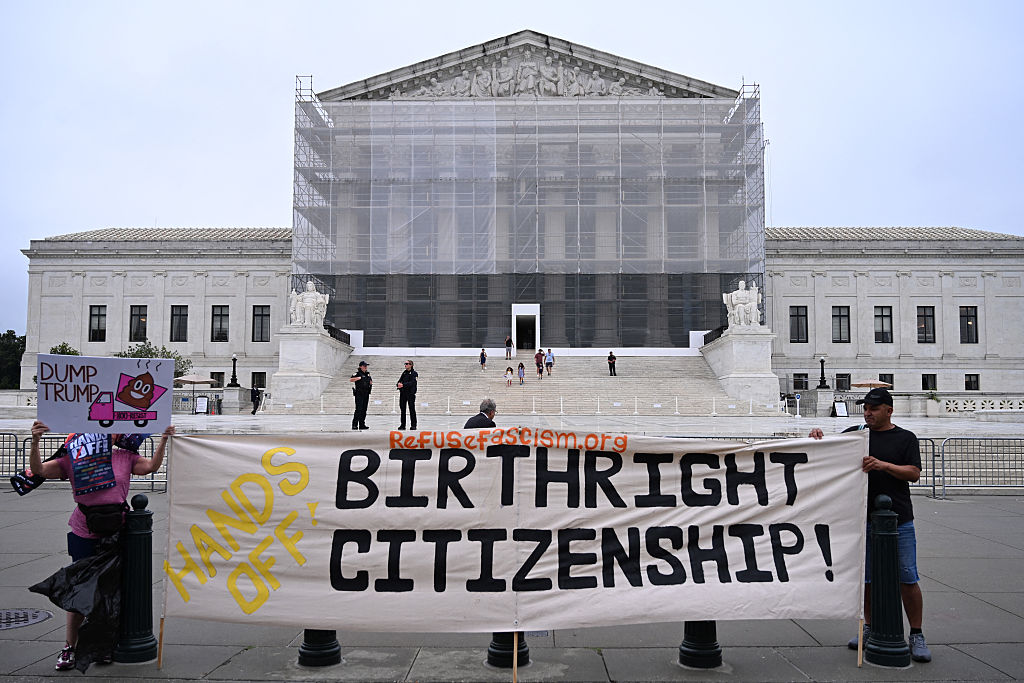The Supreme Court’s Friday ruling in Trump v. CASA may have clipped the wings of universal injunctions, but it left open — and almost surely elevated — the role of an obscure but fundamental doctrine called “collateral estoppel.” In the coming months, as litigants seek to capitalize on early legal wins without the benefit of a broad preliminary injunction, this doctrine could become the legal left’s most potent tool.
The ruling in CASA disapproved of nationwide — or, more aptly, “universal” — injunctions, holding that under an originalist view of the Constitution and the Judiciary Act of 1789, federal courts lack the historical equitable authority to block federal policies on behalf of nonparties. Going forward, courts may only enjoin enforcement to the extent necessary to give relief to the plaintiffs who brought the case. The decision curtails the ability of a single district judge to halt federal initiatives across the country — good news, perhaps, for executive power, but potentially bad news for the rule of law if every case has to be relitigated from scratch.
Enter collateral estoppel. Also known as issue preclusion, it stands for the common-sense proposition that once a court decides an issue fairly and finally, a party doesn’t get to relitigate the issue again in another court after losing it the first time. From the perspective of collateral estoppel, once a trial court rules that an executive order violates the Constitution, even a narrowed injunction doesn’t erase that holding. Litigants elsewhere can invoke that ruling in follow-on cases, arguing that the government is barred from relitigating the same losing arguments.
In CASA, courts enjoined enforcement of President Donald Trump’s Executive Order 14160, which sought to redefine who qualifies as a U.S. citizen at birth. Although the Supreme Court stayed those injunctions as overly broad, it did not disturb the underlying findings that the order likely violates the Constitution and federal law.
That dynamic is especially important in fast-moving, high-stakes litigation like the battle over birthright citizenship. In CASA, courts enjoined enforcement of President Donald Trump’s Executive Order 14160, which sought to redefine who qualifies as a U.S. citizen at birth. Although the Supreme Court stayed those injunctions as overly broad, it did not disturb the underlying findings that the order likely violates the Constitution and federal law. As a result, future litigants can — and likely will, armed with collateral estoppel — argue that the federal government is precluded from denying citizenship on that basis again.
The implications are far-reaching. Across the country, hundreds of people could bring new cases asserting the same rights, invoking collateral estoppel to fast-track proceedings. State attorneys general, advocacy groups and affected individuals won’t have to reinvent the wheel; they can cite the findings from CASA as settled law. Unlike universal injunctions, which are top-down blocks, collateral estoppel works laterally — one court at a time, but each building on the last.
This isn’t a loophole. It’s how our legal system is supposed to work. Collateral estoppel protects courts from wasting time, litigants from wasting money and the rule of law from death by a thousand cuts. If the government gets only one shot to prove its policy is lawful, it has an incentive to take that shot seriously. It can’t just stall, forum-shop or hope to outlast its opponents through brute repetition.
Critics may argue that issue preclusion, like universal injunctions, has the potential to chill executive action. But the distinction matters. Collateral estoppel doesn’t stop a policy dead in its tracks; it simply holds the government to the consequences of losing a case. It’s not a nationwide blockade. It’s a guardrail against lawless persistence.
We need your help to stay independent
The irony, of course, is that CASA — a decision meant to curtail judicial overreach — may end up empowering the courts in a different way. If plaintiffs across the country start winning on collateral estoppel grounds, federal policies could unravel bit by bit, jurisdiction by jurisdiction. That patchwork may be messier than a single sweeping injunction, but it’s no less effective — and far more durable under current precedent.
That means CASA has not ended the fight over Trump’s birthright order. It’s simply shifted the battlefield. Now the litigation will happen in many courtrooms instead of one. But thanks to collateral estoppel, the government may not get hundreds of chances to win.
The American legal system is not built for speed, but it is built for fairness — and once an issue is fairly decided, it stays decided. That’s why collateral estoppel matters. After CASA, it may be the most powerful doctrine you’ve never heard of.
Read more
about this topic


